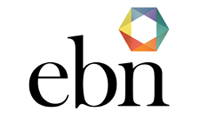
Last week was a busy one for my brain. I attended 2 training sessions and I had two meetings to discuss new products and services, which will involve using new systems. The bit of my brain that was left started to think about this aspect of networking: knowing people who know stuff.
When I became self-employed, nearly 25 years ago, I quickly realised that I had left behind the support system that comes with working in the corporate world: a secretary who sorted all my admin needs, an IT section so I didn’t have to bother with things that plug in and require passwords, a stationery cupboard that the fairies filled, and a whole team who made sure that I could concentrate on what I was good at—building relationships with customers and potential customers (so some things haven’t changed).
All the above included having projects, usually decided by my boss, that meant I would be given a brief that included a how-to sheet. (Is it just me who wants to call this a brief brief?) That was it. Now I think of new products and services (woohoo!) and I must find people who know the stuff I will need to know to implement the whole thing. I then need to manage the implementation. This includes a level of understanding. However, since I know these people who know stuff, it doesn’t have to be a deep understanding since I can always ask my supplier for help.
I have suppliers who I have known for forever and I have suppliers I’ve known for months. All of them have the same qualities. They:
- know their stuff,
- can solve my problems (not all of them of course just the ones that relate to their specialism!),
- can explain stuff I need to know and understand in language that I can understand and
- are people I trust.
So last week I learnt:
- about making websites effective and uploading videos to YouTube (thanks Mike Hennan),
- some intricacies of social media marketing (thanks Lesley Morrissey),
- additional information about how to get the best from Zoom (thank you David Bell).
Self-employment can be a lonely place but we are not alone. We are surrounded by people whose knowledge is different from ours and who are willing and able to help us build our businesses.
What did you learn in the last week? If you want get some information about networking, go to: www.ebn.uk.com and download my 20 top tips.
Happy networking.












Recent Comments